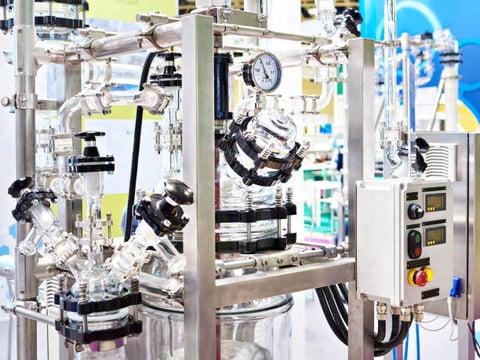Flexible Manufacturing: Empowering Production Schedulers in Chemical Manufacturing
In today’s volatile economic landscape, flexibility has become more than a competitive edge—it's a necessity. Nowhere is this truer than in chemical manufacturing, where the complexity of processes, regulatory requirements, and fluctuating customer demand require dynamic, agile responses from production operations. For Production Schedulers, the pressure to respond quickly while maintaining efficiency, compliance, and cost control is unrelenting.
This is where Flexible Manufacturing—enabled by advanced scheduling platforms like PlanetTogether, seamlessly integrated with ERP and MES systems like SAP, Oracle, Microsoft, Kinaxis, or Aveva—enters the scene as a game-changer.
What is Flexible Manufacturing?
At its core, Flexible Manufacturing refers to the ability to rapidly adjust production plans and operations in response to both internal and external changes. It involves:
Quick product changeovers
Dynamic rescheduling of production runs
Efficient capacity utilization
Multi-site and multi-line coordination
Integrated inventory and materials planning
In chemical manufacturing, where production processes often include batch processing, hazardous materials, strict compliance, and long lead times, flexibility can drastically reduce downtime, improve yield, and enhance responsiveness to market shifts.
The Production Scheduler’s Dilemma
As a Production Scheduler, you’re the critical link between planning and execution. You’re constantly juggling:
Tight production timelines
Sudden changes in raw material availability
Equipment maintenance schedules
Labor constraints
Customer delivery demands
You need real-time visibility and control—not just static spreadsheets or siloed ERP reports. And that’s where PlanetTogether’s Advanced Planning and Scheduling (APS) software, tightly integrated with your core systems, delivers value.

The Role of PlanetTogether APS in Enabling Flexibility
PlanetTogether APS offers the visibility, agility, and intelligence required to implement flexible manufacturing on the shop floor. Its drag-and-drop Gantt charts, automated scheduling algorithms, and constraint-based planning features make it indispensable for schedulers.
Here’s how it supports flexible manufacturing:
Real-Time, Constraint-Based Scheduling
Chemical manufacturing often requires the synchronization of multiple constraints—equipment readiness, cleaning times, product compatibility, storage conditions, etc. PlanetTogether APS allows you to define and manage these constraints, automatically generating the most efficient and feasible schedule.
And when things change—as they always do—you can instantly see the ripple effects and adjust accordingly.
Multi-Plant, Multi-Line Coordination
Whether you're managing a single site or coordinating across multiple plants and production lines, PlanetTogether enables you to visualize and balance capacity, optimize transfers, and reduce overproduction. This level of coordination is essential in chemical operations where one delay can trigger a domino effect.
Integration with ERP and MES Platforms
The true strength of PlanetTogether lies in its ability to integrate seamlessly with systems like:
SAP: Real-time data synchronization ensures material availability, work orders, and capacity planning are always up to date.
Oracle: Connects planning with inventory, procurement, and financial modules for a more holistic view.
Microsoft Dynamics: Leverages your existing infrastructure to streamline scheduling and improve data accuracy.
Kinaxis: Enhances supply chain planning with agile manufacturing execution.
Aveva MES: Synchronizes production execution with high-level planning, reducing delays and improving OEE.
This integration allows schedulers to act on current, accurate data instead of working in silos. Changes in demand, materials, or production capacity reflected in your ERP or MES are instantly visible in PlanetTogether, supporting real-time decision-making.

Benefits of Flexible Manufacturing for Production Schedulers
Let’s break down how this approach specifically benefits your day-to-day role as a scheduler:
Increased Responsiveness
Quickly adapt to supply chain disruptions, rush orders, or equipment issues without creating chaos.
Improved Resource Utilization
Get more out of your current assets by minimizing downtime, managing changeovers efficiently, and aligning schedules with maintenance plans.
Enhanced Visibility
See the big picture across lines, shifts, and facilities. Know where bottlenecks are forming before they impact production.
Better Collaboration
Integrated systems create a single source of truth. Sales, procurement, production, and planning are all working from the same playbook.
Reduced Manual Work
Automated scheduling reduces reliance on spreadsheets and manual entry—freeing you up for higher-level strategic decisions.
Chemical manufacturing will never be a static environment. As regulations, customer demands, and supply chain dynamics continue to evolve, your ability to schedule flexibly will define your plant’s ability to compete.
PlanetTogether, integrated with your ERP or MES platform, equips you with the tools and insights to make smarter, faster decisions. It helps you shift from being a reactive scheduler to a proactive strategic partner, driving performance and agility throughout your operations.
So if you’re ready to go from spreadsheet firefighting to smart scheduling—flexible manufacturing is your next move.
Are you ready to take your manufacturing operations to the next level? Contact us today to learn more about how PlanetTogether can help you achieve your goals and drive success in your industry.
Topics: PlanetTogether Software, Improved Resource Utilization, Integrating PlanetTogether, Enhanced Visibility, Increased Responsiveness, Better Collaboration, Chemical Manufacturing





















LEAVE A COMMENT